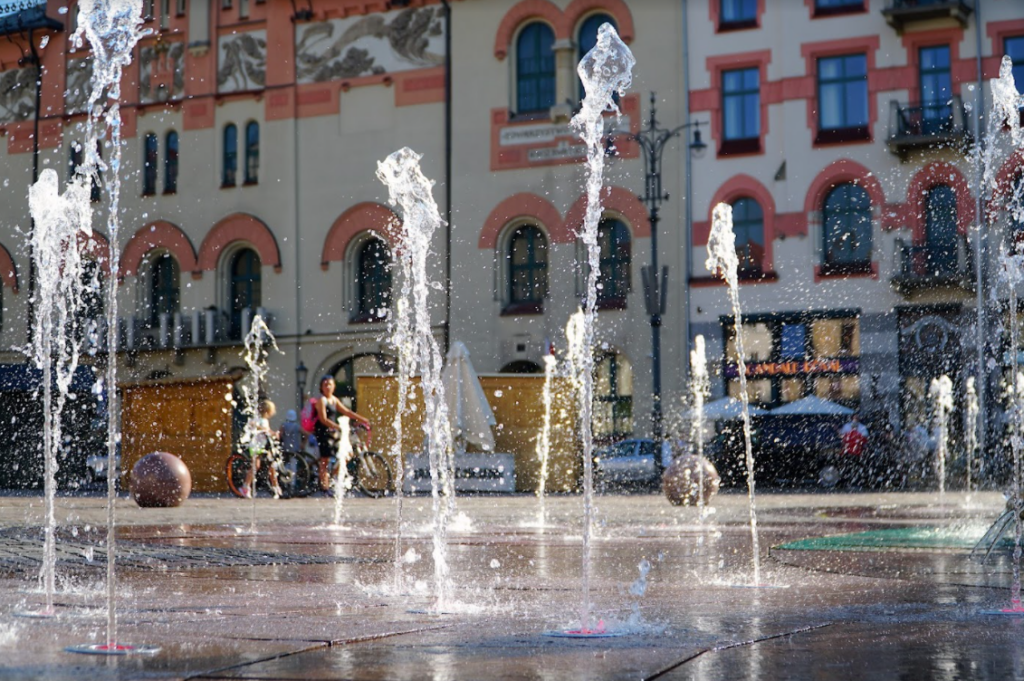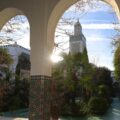French Catholics and the presidential elections: Hope despite sharp divisions?
French Catholics and the presidential elections: Hope despite sharp divisions?
In the run-up to the French presidential elections, the bishops of France address Catholics who are divided on the image of French society as a whole.
On January 18th 2022, the French bishops published a document entitled ‘Hope does not disappoint’.[1] As has become a custom on the eve of important occasions like presidential elections, the bishops wished to address Catholics, but also more widely society and members of parliament. The 60-page text gives an overview of the political and social situation in the country and recalls some central points of Catholic doctrine. In doing so, the bishops do not wish to give voting instructions. Rather, they aim to remind everyone of their responsibility to participate in the vote and thus fight against the massive abstention that threatens the next elections.[2]
A delicate communication exercise
Although the publication of this type of document is not new, it has become a very delicate exercise for several reasons. First, the significant dysfunctions in the handling of the numerous cases of sexual abuse revealed in recent months is fueling the crisis the Catholic Church is going through. More than ever, this obliges the French bishops to adopt a posture of humility.
Added to this are the tensions caused by the COVID-19 health restrictions that some Catholics consider to be attacks on religious freedom. Indeed, during the pandemic, relations between the episcopate and the government were sometimes stormy. Some conservative Catholic organisations criticised the bishops for their passivity and lack of courage in the face of a government that was considered indifferent or even hostile to the matter of religion. These organisations have even challenged government measures in court, thus appearing to be the true defenders of religious freedom.[3]
A church divided between ‘leftists’ and traditionalists.
But above all, internal divisions have made the drafting of this text delicate. Like the rest of French society, Catholics are divided on many issues. Simplistically, the divide is between, on the one hand, those who prioritise the safeguarding of the traditional family and of life (the fight against euthanasia and abortion), and on the other, those who favour attention to the poorest and to foreigners/migrants. Although this division is in fact more nuanced, it has nevertheless been increasingly noticeable for some years in favour of the conservatives.[4]
Éric Zemmour’s candidacy: a catalyst for conservative Catholics
By declaring himself a candidate for the presidency of the Republic in November 2021, Éric Zemmour has managed to attract the support of several leaders of conservative Catholic right-wing movements. They see in the populist candidate a credible defender of France and its Catholic heritage. Among them are Philippe de Villiers, Marion Maréchal (Marine le Pen’s niece), Christine Boutin, and Jean-Christophe Poisson.[5] They share with Zemmour the anguish of being downgraded, the fear of a conquering Islam, and the suspicion of an immigration which, in their eyes, represents a threat to national security and destabilises an already weakened French social model.[6] For them, Zemmour’s candidacy represents an opportunity to influence the electoral debate at a level not previously reached.
Conservative rallying for the defence of the Christian heritage
Before anything else, the consensus between Christian conservatives and Zemmour’s supporters is the defence of the cultural heritage of Christianity. The weight of this religious heritage is undeniable despite secularisation and the intensification of cultural and religious plurality in society. It also continues to mark, whether we are aware of it or not, the organisation of life in society.[7]
But what exactly is being defended by Zemmour and conservative Christians? The defense of the Christian heritage seems more like an instrumentalisation of a religion that has been reduced to a national identity marker. A cultural religion that is in fact stripped of its spiritual dimension and its evangelical scope.[8] To sum up, in the eyes of Christian conservatives, contemporary Catholicism, weakened by too many concessions to modernity,[9] is in a weak position when faced with a conquering Islam. And yet, in the face of this threat, the only bulwark is Christianity.
Pope Francis in the target of Catholic conservatives
Zemmour’s criticism echoes the vigorous complaints made by traditionalist circles about Pope Francis. In the summer of 2021, the Holy See’s decision to severely restrict the use of the Latin Mass provoked a protest on an unprecedented scale within the French trationalist institutes.[10] In particular, the pope criticises traditionalists for having as their main concern the celebration of Mass without concern for the rest of the community.
The sense of fraternity is precisely the other main sticking point. Indeed, the Vatican’s positions on migration issues divide the Church in France. On the one hand, there are Catholics who advocate an open world and strongly oppose the erection of walls. On the other hand, conservative Catholic intellectuals such as Pierre Manent and Rémi Brague criticise the pope for being naive and encouraging a massive influx of migrants that endangers the sovereignty and integrity of the nation state.[11]
A passion for the liturgy that awakens political divisions
The current confrontation between traditionalists and ‘leftists’ over the question of the liturgy is stirring up French political passions. According to Guy de Kerimel, president of the Liturgy and Pastoral Action Commission of the French Bishops’ Conference, “people go to mass in Latin to better identify themselves as Catholics.” It is a sign of a “rigidification of identity” caused by the moral crisis of our time combined with the fear of Islam.[12]
This debate is not anecdotal. It also reveals deep political divisions in France, rooted in a memorial battle around the Revolution of 1789. Indeed, this founding historical moment for contemporary France continues to divide the country between a conservative Catholic movement often nostalgic for the monarchy and an anticlerical and secular Republican trend.[13] This historical conflictual logic helps to understand the increasingly sharp division within the Church, between those who are referred to as traditionalists and leftists, for the lack of a better term.
Choosing hope, a Christian duty
On the eve of the presidential elections, the bishops wanted to address divided Catholics, while carefully avoiding controversial subjects, notably the attraction of some Catholics to the extreme right.[14] In an interview with La Croix, the President of the French Bishops’ Conference, Éric de Moulins-Beaufort, nevertheless stressed that “Christian values are less to be defended than chosen.”[15] The mark of a great civilisation, he added, quoting Pope Benedict XVI,[16] is its capacity to welcome external contributions. A civilisation that is not doing well hardens, closes itself off, in nostalgia for a vanished past.
Want to learn more about similar topics? Go to the EARS Dashboard and receive weekly updates.
Sources
[1] L’espérance ne déçoit pas, repères de discernements chrétiens et citoyens
[2] To date, the blank vote is not officially counted in France. The bishops call for participation in voting, including the blank vote.
[3] 10 points sur le Covid-19 et l’Église catholique – Le Grand Continent
[4] Henri Tincq : « Une partie de l’Église se droitise, voire s’extrême droitise » – Le Point
[5] Ces catholiques conservateurs séduits par Éric Zemmour (la-croix.com)
[6] Chrétiens et conservateurs : qui sont les deux partis alliés d’Éric Zemmour ? (marianne.net)
[7] Jean-François Colosimo: «L’État français s’est construit en miroir de l’Église catholique» (lefigaro.fr)
[8] Zemmour himself confessed that he was not very sensitive to the social doctrine of the Church, and even distrusted the compassion preached by the Church towards the poorest.
[9] «L’Eglise a redécouvert son essence évangélique grâce à la modernité» – Portail catholique suisse. Ironically, other Christians believe, on the contrary, that the challenges posed by modernity have pushed the Church to rediscover the meaning of the message of the Gospels and to reflect on a better way to spread it in society.
[10] « L’ampleur et le degré de fureur qui s’expriment aujourd’hui contre le pape François sont inédits » (la-croix.com)
[11] La notion de fraternité divise les catholiques français (la-croix.com)
[12] For Patrick Prétot, professor of liturgy at the Catholic Institute of Paris, “the liturgy is also an expression of faith and piety, and that it is therefore very quickly made to serve visions signifying a certain relationship between the Church and the world.” Motu proprio : la liturgie, une passion française (la-croix.com)
[13] This divide, often referred to as the ‘War of the Two France’, was regularly reactivated during the 19th and 20th centuries. « La Révolution n’est pas terminée », de Jean-Clément Martin (lemonde.fr)
[14] Analyse. L’assourdissant silence des évêques sur l’instrumentalisation des «racines chrétiennes» par l’extrême droite (liberation.fr)
[15] Mgr de Moulins-Beaufort : « Les valeurs chrétiennes sont moins à défendre qu’à choisir » (la-croix.com)
[16] Bishop de Moulins-Beaufort quotes a speech by Cardinal Ratzinger in Hong Kong in 1993.






